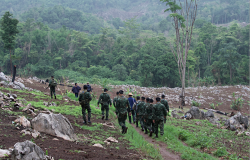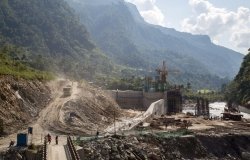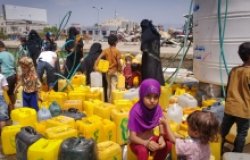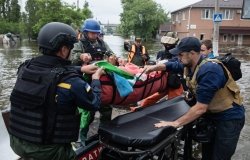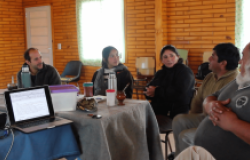Nations Find Common Ground, Not Conflict, in Water Politics
Director Geoff Dabelko chaired "Water, Peace and Sustainable Development: Implementing Johannesburg to Prevent and Resolve Conflicts"
The world's water problems—pollution, scarcity, and sanitation—were on tap at the United Nations' latest high-level meeting, the 12th session of the UN Commission on Sustainable Development . At a side event chaired by the Woodrow Wilson Center's Geoffrey Dabelko, scholars from around the world argued that nations can promote peace and reduce conflict by cooperatively managing water to solve these problems and encourage development. "Water's links to conflict, cooperation, and human security are both critical threats and golden opportunities for action," said Dabelko, who directs the Center's Environmental Change and Security Project.
Klaus Töpfer, the executive director of the United Nations Environment Programme, delivered the keynote address. Water expert and founder of the Transboundary Freshwater Dispute Database Aaron Wolf presented evidence to disprove the popular belief that international water wars are widespread. Patricia Kameri-Mbote of Kenya and Alexander López of Costa Rica provided specific examples of nations cooperating to manage their shared rivers in East Africa and Central America. Adil Najam of Pakistan discussed water challenges in light of the daily struggle for human security. Gidon Bromberg of Friends of the Earth Middle East described the pollution threatening the mountain aquifer shared by Palestinians and Israelis.
The April 29 meeting was sponsored by the United Nations Environment Programme, the Heinrich Böll Foundation, and the Woodrow Wilson International Center for Scholars' Environmental Change and Security Project.
Related Program

Environmental Change and Security Program
The Environmental Change and Security Program (ECSP) explores the connections between environmental change, health, and population dynamics and their links to conflict, human insecurity, and foreign policy. Read more
